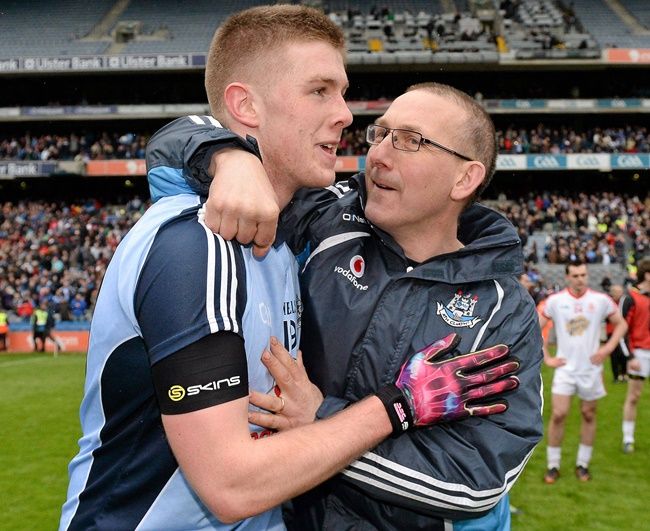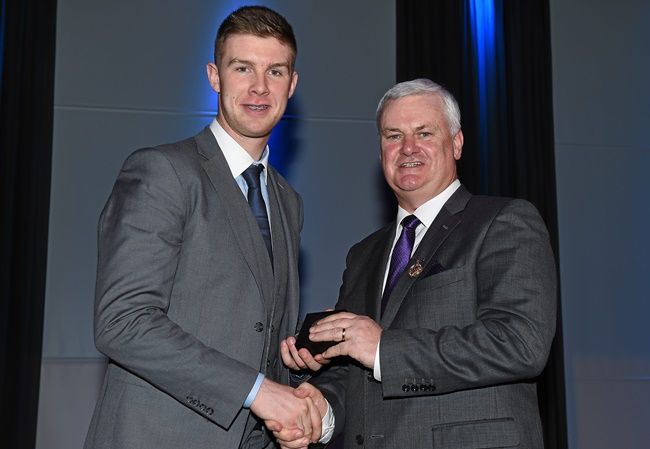What could possibly be wrong with the boy who had it all?
From the outside looking in, Shane Carthy’s life couldn’t have been any better at 18.
He had a close friend group, he’d debuted for the Dublin seniors in the National League and had been a part of the championship panel later on that year, his dream since the very first time he got his hands on a gaelic football.
He was the pride of his place, Portmarnock and he was the envy of all the other 18-year-olds in Dublin who wouldn’t even dare dream about having what he had or being what he was.
From the inside, he didn’t feel a thing. Couldn’t enjoy the successes hugely, couldn’t take pride from his achievements.
And the easy presumption to make, that this lad was on top of the world, that there wasn’t a bother on him – that made his struggles that little bit harder. When you have the ideal life, how can you show weakness? How could you possibly complain?
And so despite having reason to complain, he put on a brave face and tried to fight through it. Until he reached the point when something had to give.
Football always provided a release for him, a beautiful release, but as his inner-battle got more and more difficult to deal with, there came a time when even the uplifting impact of the football weaned and it was developments like that one that convinced him he had to act.
He had to talk. He opened up to his parents and told the Dublin under-21 manager at the time, Dessie Farrell about his struggles.
At the time, the idea was that he would continue receiving treatment while preparing for an All-Ireland campaign with the Dublin under-21s.
Then one evening, on the way to training, he experienced a panic attack and woke up in St Patrick’s psychiatric hospital the following morning.
From there, the decision was made that he had to focus on getting himself right, without the football and so he wouldn’t be partaking in the rest of the campaign for a team he’d been so influential for up to then. That was a tough decision but one that had to be made.
He learned a lot about himself in hospital – one of the most powerful being that exercise, running helped him feel happy in his own skin again.
All the way through his recovery, an open-field would work wonders for him. He’d set off, put one foot in front of the other for 45 minutes and for the rest of the day he’d feel like he’d accomplished something.
“I remember the first time the nurses asked me what I would like during the course of my treatment and I simply responded “an open field”. Probably not a common request but it was something in which I knew worked for me. After a number of weeks I had my settling in period. Therefore, they granted my request and I was allowed ‘accompanied leave’,” reads the blog he shared about his journey.
“Everyday either my parents or my sister would take me to the Phoenix Park where it was just me and an open field. I stuck my headphones on, threw my hood up and began running. I would run for about 45 minutes daily mixing it up between long distance and intervals.
“The positive feelings you feel racing through your body post exercise was something that I loved to feel every day. No matter what kind of a day I was having prior to my run I knew after I completed my session it would put me in a better place mentally. I think the two go hand in hand- exercise and mental wellbeing. For me anyway, exercise helped me at the times I needed it most.”
That gave him purpose. Everybody else knows the feeling.
Read his whole story from his blog here. It really is worth your time.
I’ve written a blog surrounding my experiences with depression. My intention is to share a message to those who are suffering in silence that there is hope for you and you are not alone on this journey – https://t.co/iA7ScFi5Lw
— Shane Carthy (@S_Carthy8) December 19, 2018







































